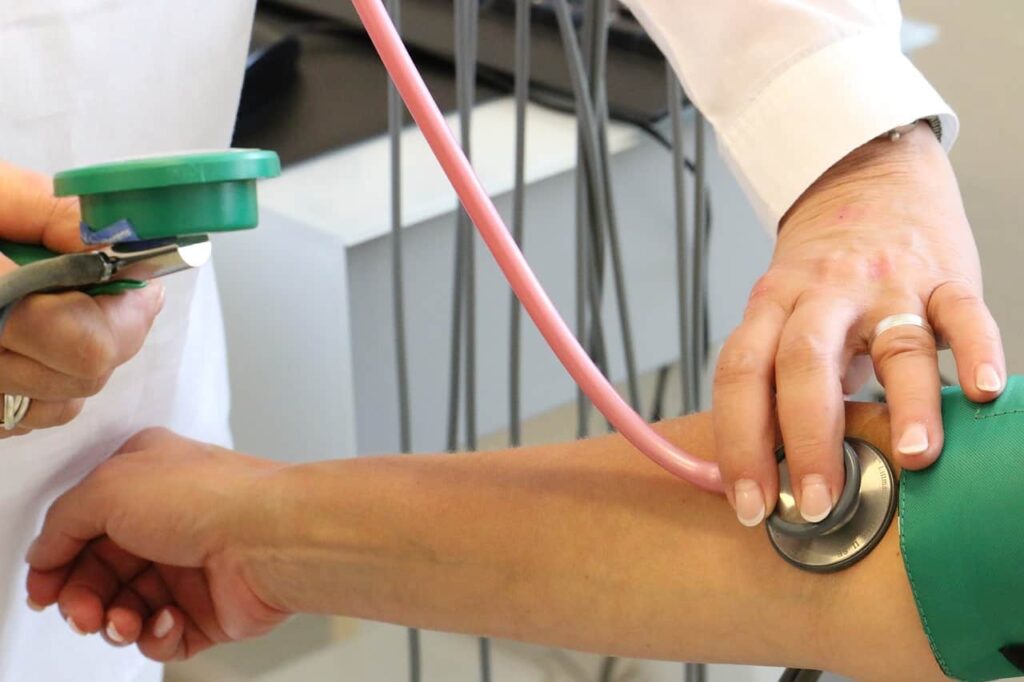Hypertension, commonly known as high blood pressure, affects millions of people worldwide. Despite its prevalence, many individuals remain unaware of the serious health risks associated with uncontrolled hypertension. In this comprehensive guide, we will explore into the definition, symptoms, stages, causes, treatments, and the crucial hypertension ICD-10 codes related to hypertension, with a specific focus on its implications in nephrology.
Definition
Hypertension is a medical condition characterized by elevated blood pressure levels consistently exceeding the normal range. Blood pressure is measured in millimeters of mercury (mmHg) and is recorded as two numbers: systolic pressure (the pressure when the heart beats) and diastolic pressure (the pressure when the heart rests between beats). The threshold for diagnosing hypertension typically starts at a systolic pressure of 130 mmHg or higher and/or a diastolic pressure of 80 mmHg or higher.
Symptoms
Hypertension is often referred to as a “silent killer” because it usually doesn’t cause noticeable symptoms until it reaches advanced stages or triggers complications. However, some individuals may experience:
- Headaches
- Shortness of breath
- Dizziness
- Chest pain
- Visual changes
- Fatigue
- Irregular heartbeat
It’s important to note that these symptoms can also be indicative of other health conditions, emphasizing the necessity of regular blood pressure monitoring.
Hypertension Stages
Hypertension is categorized into two main stages:
Stage 1 Hypertension: Blood pressure readings consistently fall between 130-139 mmHg systolic or 80-89 mmHg diastolic.
Stage 2 Hypertension: Blood pressure readings consistently exceed 140 mmHg systolic or 90 mmHg diastolic.
These stages help healthcare professionals determine the severity of hypertension icd-10 codes and formulate appropriate treatment plans.
Hypertension Headache
Headaches are a common sign of hypertension, especially when blood pressure rises dangerously high during a hypertensive crisis. Some symptoms, like nausea, vomiting, and vision abnormalities, may accompany these headaches, which are frequently described as pulsating. For hypertensive crises to avoid serious consequences like stroke or organ damage, quick medical intervention is essential.
Medications
Several classes of medications are available to manage hypertension and reduce the risk of associated complications. These include:
- Angiotensin-converting enzyme (ACE) inhibitors
- Angiotensin II receptor blockers (ARBs)
- Calcium channel blockers
- Diuretics
- Beta-blockers
- Alpha-blockers
The choice of medication depends on various factors, including the patient’s overall health, existing medical conditions, and potential side effects.
Guidelines
Various medical organizations, including the American College of Cardiology (ACC) and the American Heart Association (AHA), publish guidelines for the diagnosis and management of hypertension. These guidelines provide evidence-based recommendations for healthcare professionals to ensure optimal patient care and outcomes.
| Organization | Guidelines |
|---|---|
| American Heart Association (AHA) | Emphasizes lifestyle modifications, medication options, and blood pressure targets based on age and comorbidities. |
| European Society of Cardiology (ESC) | Provides recommendations on diagnosis, assessment, and management of hypertension, incorporating evidence-based medicine. |
| National Institute for Health and Care Excellence (NICE) | Offers guidance on hypertension diagnosis, monitoring, and treatment, tailored to the UK healthcare system. |
Causes
The exact cause of hypertension often remains unknown, but several factors can contribute to its development, including:
- Genetics
- Obesity
- Unhealthy diet
- Lack of physical activity
- Smoking
- Excessive alcohol consumption
- Stress
- Certain underlying health conditions such as kidney disease and hormonal imbalances
Identifying and addressing these risk factors are crucial steps in hypertension management and prevention.
Hypertension Blood Pressure
Maintaining optimal blood pressure levels is essential for overall health and well-being. The following blood pressure categories are defined by the American Heart Association:
- Normal: Systolic <120 mmHg and diastolic <80 mmHg
- Elevated: Systolic 120-129 mmHg and diastolic <80 mmHg
- Hypertension Stage 1: Systolic 130-139 mmHg or diastolic 80-89 mmHg
- Hypertension Stage 2: Systolic ≥140 mmHg or diastolic ≥90 mmHg
Regular monitoring and lifestyle modifications are recommended to prevent hypertension-related complications.
Treatments
In addition to medication, lifestyle modifications play a crucial role in hypertension management. These may include:
- Eating a balanced diet full of whole grains, fruits, veggies, and lean proteins
- Engaging in regular physical activity
- Limiting salt intake
- Controlling tension using yoga and other relaxation methods
- Avoiding tobacco and excessive alcohol consumption
Combining medication with these lifestyle changes can effectively control blood pressure and reduce the risk of cardiovascular events.
Hypertension Nephrology
Hypertension and kidney disease often coexist and can exacerbate each other’s effects. Chronic kidney disease (CKD) is a common complication of uncontrolled hypertension, and hypertension is a leading cause of CKD. Nephrologists play a crucial role in managing hypertension in patients with kidney disease, as they understand the complex interaction between blood pressure regulation and renal function.
Hypertension in Pregnancy
Pregnancy-induced hypertension, also known as gestational hypertension, can develop during pregnancy and usually resolves after childbirth. However, it can increase the risk of complications such as preeclampsia, which is characterized by high blood pressure and organ damage. Regular prenatal care is essential to monitor blood pressure and manage any potential complications.
Hypertension ICD-10 Code
In medical coding, the International Classification of Diseases, 10th Revision (ICD-10), assigns specific codes to document diagnoses accurately. The hypertension ICD-10 code is I10, which includes essential details such as the type of hypertension (primary, secondary, or unspecified) and any associated complications.
Hypertension pathophysiology
High blood pressure, or hypertension, is caused by a complex interaction of physiological variables. The basic cause of hypertension pathophysiology is abnormalities in blood pressure regulation. Blood artery narrowing, an increase in blood volume, or hyperactive hormone systems can all cause this. The development of hypertension is influenced by the sympathetic nervous system, endothelial dysfunction, and the renin-angiotensin-aldosterone system. These processes ultimately result in a persistently elevated blood pressure, which puts stress on the heart, blood vessels, and other organs. In order to effectively manage blood pressure and lower the risk of related consequences, it is imperative to comprehend the pathophysiology of hypertension.
Conclusion
Hypertension is a common health issue with far-reaching consequences if left uncontrolled. By understanding its definition, symptoms, stages, causes, treatments, and relevant hypertension ICD-10 codes, individuals can take proactive steps to manage their blood pressure effectively and reduce the risk of associated complications. Collaborating with healthcare professionals, adopting a healthy lifestyle, and adhering to treatment plans are key components of hypertension management. Remember, that when it comes to protecting your cardiovascular health, information truly is power.
Hypertension ICD-codes table:
Sure, here’s an example of hypertension ICD-10 codes presented in a table format:
| Hypertension ICD-10 Code | Description |
|---|---|
| I10 | Essential (primary) hypertension |
| I11 | Hypertensive heart disease |
| I12 | Hypertensive chronic kidney disease |
| I13 | Hypertensive heart and chronic kidney disease |
| I15 | Secondary hypertension |
This table provides an overview of some common hypertension ICD-10 codes related to hypertension, including primary hypertension (essential), hypertensive heart disease, hypertensive chronic kidney disease, and secondary hypertension.
Related FAQS
Why is hypertension a concern in nephrology?
Hypertension is a leading cause of chronic kidney disease (CKD) and can worsen kidney function over time. Effective blood pressure management is crucial in slowing the progression of kidney damage.
How does essential hypertension affect the kidneys?
High blood pressure can damage blood vessels in the kidneys, reducing their ability to filter waste from the blood effectively. Over time, this can lead to kidney disease or failure.
How can patients manage essential hypertension effectively?
Patients can manage hypertension by adhering to prescribed medications, maintaining a healthy lifestyle, regularly monitoring their blood pressure, and having regular check-ups with their healthcare provider.



